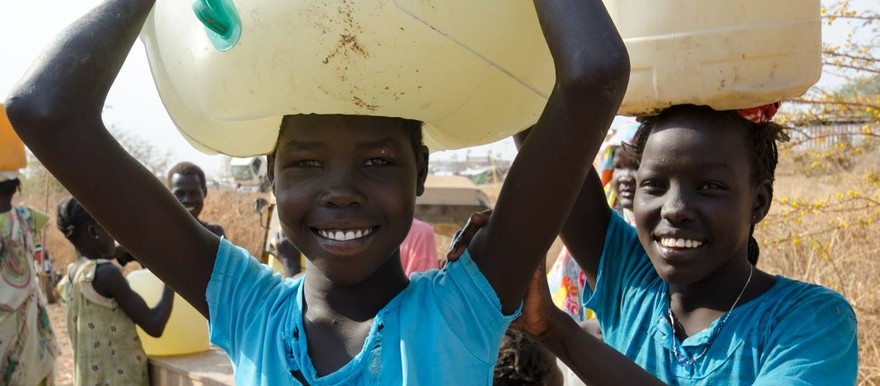The International Organization for Migration (IOM) is working to expand the water supply network at the Protection of Civilians (PoC) site inside the United Nations’ base in Malakal after thousands of people fled into the site following recent fighting.
Some displaced people living inside the POC camp last week and early this week complained in interviews with Radio Tamazuj that they did not have enough water.
IOM, which is the state focal point for humanitarian water and sanitation activities in Upper Nile State, says that the water distribution network at the Malakal PoC site was designed for 20,000 people but now there are more than 30,000.
“The recent influx of IDPs has stressed this supply, and we are working to upgrade the system,” said IOM Media and Communications Officer Ashley McLaughlin.
The United Nations has expanded its Malakal base with a new ‘extension site’ to accommodate more displaced people. But too many people moved into the site before it was ready. McLaughlin explained that plans had called for moving people into the extension site gradually throughout June, only a few hundred people per day. This would have allowed for enough time to expand the water network as people moved.
However, mass unplanned relocations of displaced people from other parts of the PoC to the extension site took place on May 28-29 “due to tensions that broke out May 28 that prompted IDPs to flee to the new extension site,” the communications officer said.
IOM team members worked urgently to set up water points in response to to this unplanned move.
“Several water points have been established in the new extension, and we are using water trucking as a temporary solution to support the needs in the site. As the planned relocation moves forward, more water points will be added as the IDPs relocate,” McLaughlin told Radio Tamazuj.
Speaking on Monday, a man living in the new extension site, Mohamed, said that there is still not enough water for their needs. “Up to now we don’t have drinking water and tents. We had water delivered in tankers but today we have only one water tanker,” he said.
Mohamed pointed out, however, that the shortage was caused at least in part by problems among the displaced people themselves. He claimed that people from a different tribe do not share water and sometimes come and take their water.
“People inside the other PoC come to us sometimes to take water from us also,” he said.
Another citizen who was experiencing the shortage of drinking water at the extension site said he did not know why there was a water problem. “I don’t know what is wrong whether the UN is not able to provide water or what I don’t know. Even tents are not there until now,” he said.
The camp resident said that they are being given one or two tankers of water per day but he said that this was not enough for them and the number of IDPs is increasing every day.
“The good thing is that there are rains because some people drink water from creeks,” he said.
However, according to IOM figures, the population of the protection site has access to 10 liters of safe drinking water per day per person, including at the new extension site. The organization acknowledged though that “unexpected influxes of IDPs due to the conflict invariably affect access to water.”
McLaughlin said that the organization is working hard to improve the water supply situation in spite of some challenges. Factors outside of the organization’s control such as insecurity, vandalism and lack of flights to Malakal have contributed to delays.
Separately, residents in Malakal said they still fear to leave the UN-protection area because militia have allegedly murdered civilians who left the site. Several people who went out to go fishing or collect firewood have not returned and are feared dead.
IOM photo




